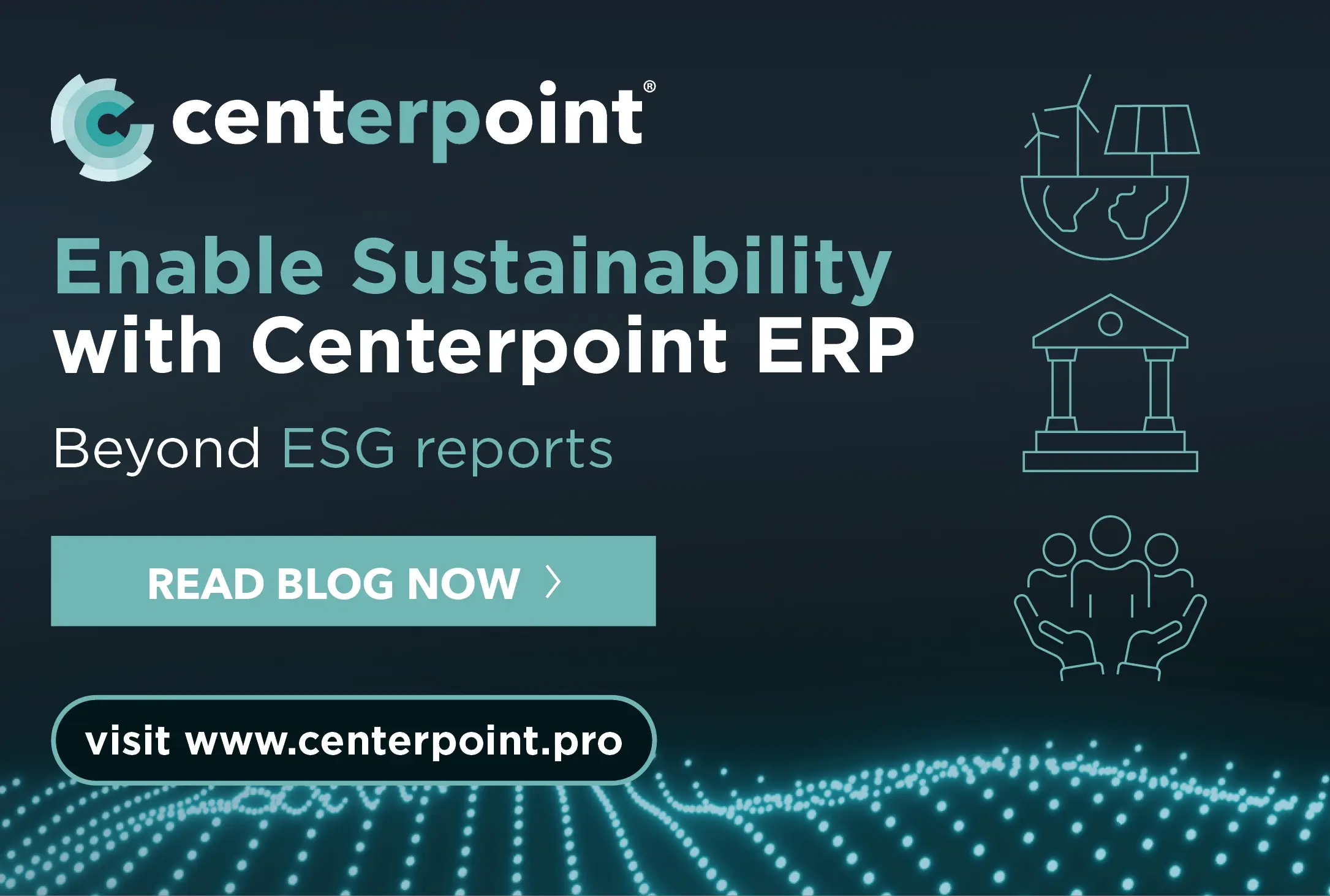In a fast-paced, data-driven world, managing an organisation's core processes efficiently is key to achieving success. That's where Enterprise Resource Planning (ERP) systems come in.
Read on to understand ERP systems, their significance, and the transformative potential they hold.
1. What is an ERP system and What Does It Do?
ERP stands for Enterprise Resource Planning – this still doesn’t give much away, does it? Essentially, an ERP system is a type of software that helps you manage your day-to-day core business processes.
With an ERP system, you can efficiently oversee all the elements necessary for running your company, all within a single, unified platform. This system is intelligently designed, enabling you to access critical data seamlessly. It's a hub where key information and operations are harmoniously managed, spanning modules like human resources, logistics, asset management, and more.
The beauty of ERP lies in the interconnectedness of its modules, ensuring that data is readily available, easily analysed, and conveniently extracted. This capability provides comprehensive insights into your business operations and management, facilitating informed decision-making.
2. What is an ERP System in Simple Terms?
To put it simply, an ERP system is your organisation's digital command centre. It consolidates and simplifies data management, optimising routine tasks and offering a comprehensive view of your entire operation. Instead of juggling multiple applications and data silos, an ERP system provides a single gateway to access and control essential information.
3. What is an Example of an ERP System?
Centerpoint ERP is a prime example of how ERP systems operate. It is a comprehensive cloud-based ERP solution. Unlike some ERP systems that rely on hidden, costly add-ons, Centerpoint includes all its features from the start, making it a cost-effective and ready-to-use choice.
4. What Are the 3 Common Types of ERP?
ERP systems are versatile and adaptable to various industries and organisational needs. The three common types of ERP systems include:
- On-Premises ERP: Installed locally on your company's servers and computers.
- Cloud-Based ERP: Hosted remotely on the ERP provider's servers and accessed via the Internet.
- Hybrid ERP: A combination of on-premises and cloud-based solutions.
5. Why implement an ERP system?
Implementing an ERP system offers numerous advantages. Firstly, they can help eliminate data duplication and ensure data integrity as everything is hosted in one place.
A further benefit of ERP is improved data visibility and decision-making. With access to real-time data from across the organisation, managers can analyse information, generate reports and gain valuable insights into business operations. This visibility enables better decision-making at all levels by helping to identify bottlenecks, optimise business processes and make data-driven strategic decisions.
Scalability and growth are also key advantages of ERP systems. They tend to be designed to support the expansion of organisations, accommodating increased transaction volumes, additional users and multiple locations. This scalability eliminates the need for frequent system upgrades or replacements, providing long-term value and cost savings.
Furthermore, ERP systems often include CRM modules which enable you to manage customer data and improve customer service effectively. Integrated CRM functionality allows businesses to enhance customer satisfaction, provide personalised experiences and streamline their sales, support and marketing processes.
Finally, having an ERP system in place can lower operational costs through streamlined business processes and best practices.
6. What is ERP in Operations Management?
An ERP system in operations management allows managers to oversee daily activities, enhancing efficiency and productivity across various departments, including production, inventory management, procurement, logistics, quality control, and more. ERP unifies these processes, enhances data visibility, and facilitates data-driven decision-making.
7. How Can ERP Improve Operational Efficiency?
ERP systems significantly contribute to improving operational efficiency by:
• Streamlining Processes: Automating and standardising tasks reduce manual effort and errors.
• Enhancing Data Visibility: Providing real-time data access, facilitating proactive decision-making.
• Data-Driven Decision-Making: Data analytics and reporting tools empower managers to make informed decisions.
• Inventory Management: Optimising inventory processes ensures resources are used efficiently, cutting operational costs.
8. How do you choose the right ERP software?
Often the acronym ‘ERP’ strikes fear into organisations who know they need to change. These organisations will “just get by” despite their information being held in inconsistent formats, being difficult to find and almost impossible to interrogate. The reluctance and fear to explore large software systems is understandable. It’s important that when selecting what system is right for you, you consider what it is you need from your ERP system. This will help you determine the type of software that's right for your business.
Introducing Centerpoint: More than just another ERP…
If you’re looking for an ERP system that doesn’t take months to implement, is user-friendly and cost effective, then look no further. Centerpoint is an innovative ERP system which has been developed through a collaboration between STC INSISO and ANSA Data Analytics. This cloud-based system is comprehensive, ready-to-use and there’s no expensive hidden modules – from the outset everything is included!
There are eight modules within Centerpoint that give structure to all business processes. They are Human Resources, QHSE, Operations, CRM, Asset Management, Maintenance, Logistics and Purchasing. Therefore, information relating to these functions is visible to all employees in one place.
An ERP system is now an essential tool for businesses of all sizes. Centerpoint can quickly be put to work in your organisation, streamlining operations, improving efficiency and driving growth. Book a Demo to discover how we can help you enhance your business operations.
.png)
.png)

.png)
.png)





